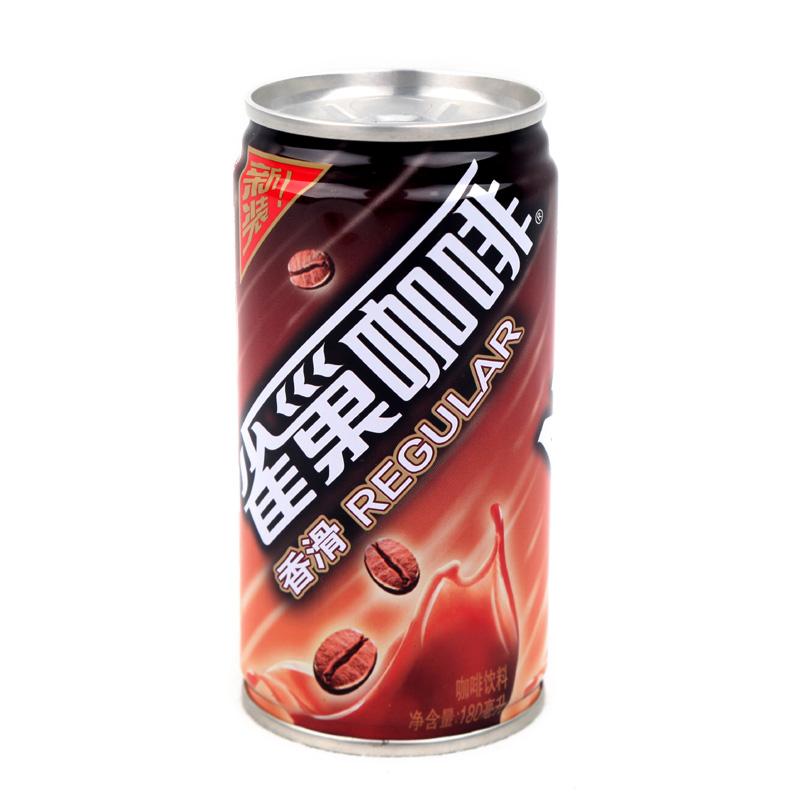Last year's poor performance, why did Nestl é pour out the coffee?
In the 1980s, Maxwell and Nestle, two major instant coffee brands, were almost the forerunners of Chinese mainland coffee enlightenment education. But the coffee market is no longer just owned by Nestl é and Maxwell. Under pressure from many coffee products to carve up the market, Nestl é destroyed nearly 400 tons of unexpired instant coffee in February. Production capacity ahead of consumption capacity, Nestl é "instant coffee boss" status has been shaken.

Dump what you can't sell.
Not only the small dairy farmers' association misjudged the situation, but also overestimated the spending power of the market, such as Nestle. Nearly 400 tons of unexpired Nestle coffee was destroyed in Dongguan, Guangdong province in February, with a market value of nearly 10 million yuan, Rule of Law weekend reported. Nestl é responded that the move was to keep products fresh and destroy stocks.
It is reported that the above-mentioned destroyed products are returned to the market close to the shelf life, with a total amount of nearly 400 tons, the largest destruction since the plant was established in 1992.
As for the reason for destroying coffee, Xu Xiongjun, an expert in strategic positioning of food and beverage, believes that it is the oversupply caused by the slowdown in the growth rate of the industry and the increase in production capacity in advance. In February, Gong Wanren, Nestl é's chief financial officer, mentioned at a performance meeting with analysts that the growth of the entire category of instant coffee was slowing.
The market situation of Nestle coffee is really not good. In February this year, Nestl é released its 2014 annual report, showing that global sales increased by 4.5% to 91.6 billion Swiss francs, a five-year low.
The "petty bourgeoisie" began to be "close to the people"
Nestl é decided to increase production ahead of time, naturally taking a fancy to China's huge market prospects. Coffee is no longer a "petty bourgeoisie" product, but a "pro-people" line.
According to the China Sankei News, the sales of coffee in China have grown rapidly in the past five years, rising from 5.554 billion yuan in 2009 to 10.343 billion yuan in 2013, according to the Mintel industry research report.
Other statistics show that the size of China's coffee consumption market was only 70 billion yuan in 2012, and this figure is expected to double to 150 billion yuan by 2017.
According to statistics, the per capita annual coffee consumption in China is only 4 cups, while the average annual coffee consumption in neighboring Japan is as high as 200 cups, and the average annual coffee consumption in South Korea is 140 cups. The gap means huge market potential.
If China's coffee market enters a period of rapid growth in the next 10 years, the consumption of China's coffee market is expected to reach 300 billion yuan by 2020. At present, world coffee consumption is growing at an annual rate of only 2%, while coffee consumption in China is growing at an annual rate of about 15%. In the face of such a market with great potential and rapid growth, it is no wonder that all kinds of businesses are competing for the top, and Nestl é is no exception.
The Red Sea Market of Coffee
Nestl é is not alone in seeing the future of the Chinese market. At present, several brands with high market rate of ready-to-drink coffee in China are Nestle, Uni-President Yaha, Wangwang Bond and Wei Quan Bernarzon and so on.
As one of the earliest coffee drinks to enter the Chinese market, Nestl é accounts for more than half of the market share of ready-to-drink coffee, followed by Uni-President Yaha with a strong channel network.
Nowadays, the pace of life and consumption habits of Chinese people are changing, and the growth rate of instant coffee is slower than in the past, but instant coffee is very popular, especially among young people and office workers.
Instant coffee has become a more marginalized category from the core category of gift giving at the beginning of the New year. More and more rational and mature consumers gradually choose more pure coffee products.
According to a report released by consulting firm Mintel, the market share of instant coffee, freshly ground coffee and ready-to-drink coffee is 71. 8%, 10. 8% and 18. 1% respectively. 1%. Although instant coffee continues to dominate China's coffee market, these two market segments are expected to gain more share as the freshly ground and ready-to-drink coffee markets grow more rapidly.
As a result, there are more and more cafes, and Starbucks, Pacific and Costa Coffee are all actively expanding their physical stores. At the same time, the bottled coffee beverage industry began to develop. On March 19 this year, Starbucks Coffee Company and Kang Shifu Holdings Co., Ltd. announced the signing of a formal cooperation agreement to produce Chinese mainland ready-to-drink drinks and expand distribution channels in the local market. China Resources Yibao is also considering combing two categories: magic vitamin water and hot coffee.
In addition, KFC launched freshly ground coffee, Haagen-Dazs new latte ads also began to spread everywhere, as for McDonald's "McCoffee" area appeared earlier.
Coffee market share will be carved up again. At present, Nestl é is the leader of domestic instant coffee, but many cafes and bottled coffee may have a certain impact on Nestle's market share.
Eliminated instant coffee
Nestl é also has canned coffee, but its main product is still instant coffee, and the current problem of instant coffee is just a microcosm of Nestl é's problems in the Chinese consumer market.
According to thepaper.cn, Bok Kai, chief executive of Nestl é, believes that the reason for the recent performance is that some changes are taking place in China's consumer environment. He described the changes as "at least to the extent I have seen, consumers in other markets in the world have changed as fundamentally as in China".
In addition to slowing economic growth and reducing gift-giving as a result of the fight against corruption, people's demand for health and changes brought about by digitization are affecting changes in people's spending habits. Nestl é still needs time to identify trends and reformulate plans to keep up with them.
Among them, the impact of digitization, that is, e-commerce, is the most significant. In the past, foreign brands like Nestl é mainly relied on modern channels such as supermarkets and stores for sales, but large stores, including Carrefour and Wal-Mart, have encountered bottlenecks in the development of China in recent years. and is adjusting the store layout and internal organizational structure in order to reduce costs and improve operational efficiency.
This situation is reflected in the suppliers, that is, the channels begin to reduce inventory. Therefore, it is not surprising to look at Nestle's destruction of excess instant coffee.
Source: China Civil Aviation Daily
Important Notice :
前街咖啡 FrontStreet Coffee has moved to new addredd:
FrontStreet Coffee Address: 315,Donghua East Road,GuangZhou
Tel:020 38364473
- Prev

How's about? Have a cup of Yunnan coffee!
It is not difficult to have a cup of Yunnan coffee in ■, because 99% of the domestic coffee comes from Yunnan. On April 10, a series of press conferences on charismatic clouds with Yunnan characteristics held by the Information Office of the Yunnan Provincial Government kicked off. The first one was the appearance of Yunnan Coffee. Coffee has been planted in Yunnan for a hundred years, and it is the first area in mainland China to introduce coffee. 1892
- Next

Pour-Over coffee machine simplifies the process of making coffee by hand
Hand-brewing coffee is a common choice for coffee lovers, but the process is cumbersome and a headache. Poppy's Pour-Over coffee machine is designed to simplify the process of hand-brewed coffee. The funnel above the machine can hold 1.25 pounds of coffee beans, the grinder uses a built-in grinding plate, and the water reservoir is equipped with a charcoal filter to ensure the cleanliness of the water. The coffee machine passes the application.
Related
- What grade does Jamaica Blue Mountain No. 1 coffee belong to and how to drink it better? What is the highest grade of Blue Mountain coffee for coffee aristocrats?
- What are the flavor characteristics of the world-famous coffee Blue Mountain No. 1 Golden Mantelin? What are the characteristics of deep-roasted bitter coffee?
- Can I make coffee a second time in an Italian hand-brewed mocha pot? Why can't coffee be brewed several times like tea leaves?
- Hand-brewed coffee flows with a knife and a tornado. How to brew it? What is the proportion of grinding water and water temperature divided into?
- What is the difference between Indonesian Sumatra Mantinin coffee and gold Mantinin? How to distinguish between real and fake golden Mantelin coffee?
- What does bypass mean in coffee? Why can hand-brewed coffee and water make it better?
- Unexpected! Ruixing Telunsu lattes use a smoothie machine to foam milk?!
- % Arabia's first store in Henan opens into the village?! Netizen: Thought it was P's
- Does an authentic standard mocha coffee recipe use chocolate sauce or powder? Mocha Latte/Dirty Coffee/Salty Mocha Coffee Recipe Share!
- What is the difference between Vietnam egg coffee and Norway egg coffee? Hand-brewed single product coffee filter paper filter cloth filter flat solution!

